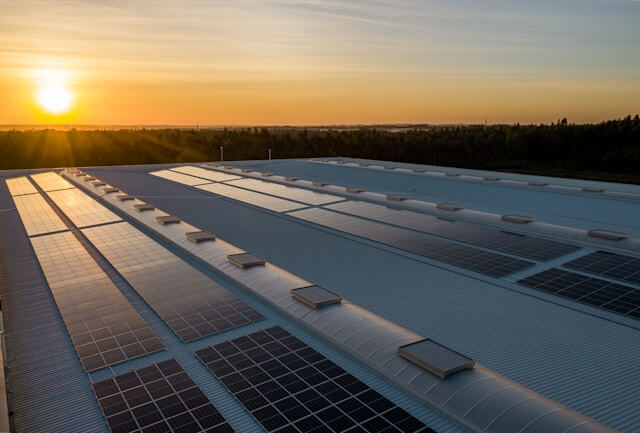Sailing across the open waters can be a profound experience; the vast ocean around you and the horizon in the distance deliver a sense of freedom unlike any other. Long have sailors depended on the wind and tides to journey across the seas, but now the sun is becoming an invaluable ally.
Modern seafarers are increasingly turning toward solar energy as a sustainable power source to enhance their maritime adventures. Fitting boats with solar panels not only contributes to environmental preservation but also provides a reliable power supply while cruising offshore. This article discusses the perks of solar energy for boats and how solar batteries are changing the game for sailors around the world.
Embracing Renewable Energy at Sea
The marine environment is uniquely challenging for power generation. Traditional methods, such as diesel generators, are noisy, contribute to pollution, and require a constant supply of fuel. Solar panels offer a silent, clean alternative that can harness the abundant sunlight found at sea.
Sustainable and Quiet Energy Production
Solar panels transform solar energy directly into electricity without producing harmful emissions or noise pollution, preserving the marine ambiance and ecosystem. This quiet and eco-friendly approach has a minimal carbon footprint compared to generators that burn fossil fuels, aligning with a growing environmental consciousness among sailors and boating enthusiasts.
Minimising Operating Costs
While the initial investment in solar technology can be substantial, solar panels drastically reduce the operating costs of a boat. The sun's energy is free, thus eliminating the expenses incurred from purchasing fuel. Over time, the solar installation pays for itself, making it a cost-effective solution for long-term sailors.
The Key Role of Solar Batteries
A solar power setup on a boat is not complete without solar batteries - these are essential components that store the energy generated by the panels for later use. They ensure a constant power supply when sunlight is temporarily unavailable, like during nighttime or cloudy days.
Energy Storage for Continuous Power
Solar batteries make the energy generated by the panels accessible at any time, facilitating the use of electrical equipment on board without the constraints of live solar generation. This ensures critical navigation devices, communication systems, and cabin comforts remain functional.
Eco-friendly Power Management
Solar batteries enhance the environmental benefits of solar panels by using advanced technologies that are efficient, long-lasting, and recyclable. These batteries contain fewer harmful chemicals than traditional lead-acid batteries, aligning with the eco-conscious goals of using solar energy on boats.
Installation Considerations for Marine Solar Panels
When planning to install solar panels on a boat, several factors must be deliberated to ensure optimum power generation.
Space and Location
Identifying the right location for panel installation is crucial. The solar panels must have maximum exposure to sunlight without being obstructed by masts, rigging, or other equipment. Many boat owners prefer flexible solar panels that can be attached to the deck or the bimini tops, adapting to the available space without significantly impacting the boat’s design or function.
Resistance to Harsh Conditions
Marine solar panels must be durable enough to withstand the severe conditions at sea, including saltwater, wind, and UV radiation. Specialised marine-grade panels are designed to be waterproof and corrosion-resistant, ensuring longevity and reliability.
Efficient Charge Controllers
Charge controllers are essential devices that regulate the voltage from solar panels to the solar batteries, preventing overcharging and potential damage to the batteries. A high-quality charge controller maintains battery health and extends its lifespan, which is particularly relevant for marine applications where battery reliability is vital.
Legal and Safety Regulations
Before adding solar panels to a boat, owners should familiarise themselves with any applicable maritime laws and safety regulations. These regulations might dictate where panels and batteries can be installed and outline necessary safety precautions to ensure compliance and seaworthiness.
Tailored Solar Solutions
Each boat presents its own set of challenges for solar installation. Tailoring the solar panel system to meet the unique energy needs of the vessel and its navigation pattern is essential. Professional installation companies can help design custom solutions that fit the constraints and dynamics of the boat while maximising energy capture.
Conclusion
Solar panels paired with robust solar batteries offer boaters an exceptional opportunity to harness the power of the sun while at sea. This sustainable technology not only reduces the environmental impact and operating costs but also provides a durable and reliable source of energy for marine vessels. While installation demands careful planning, the advantages of integrating solar power into the marine world are undeniable. As solar technology continues to advance, we can anticipate a future where sunlight propels not just the sails, but the entire livelihood of boats across the globe's vast oceans.

Comments